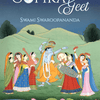Born as Balakrishna Menon on May 8, 1916 in Ernakulam, Kerala, Swami Chinmayananda was a dynamic youth with a sharp mind. After earning a degree in English Literature, he embarked on a promising career in journalism and became involved in India’s freedom struggle.
Imprisoned and struck by serious illness in 1942, Balakrishna emerged changed and began to question the deeper purpose of life. A turning point came in Rishikesh where he met Swami Sivananda in 1947; this meeting set him on an inward journey. Soon after, he adopted renunciation and was initiated as Swami Chinmayananda Saraswati, becoming a disciple of Swami Tapovan Maharaj, with whom he studied the Bhagavad Gita, Upanishads and Vedanta in austere conditions high in the Himalayas.
After completing his spiritual training, he felt compelled to share the wisdom he had received. In December 1951, he conducted his first Jnana Yajna, a series of spiritual discourses in Pune. This humble start blossomed into the global movement known today as Chinmaya Mission, as he founded many Ashrams, Centres, schools, hospitals and clinics over the decades. He worked to make Vedanta accessible to all regardless of age, nationality or faith.
For over four decades, Swami Chinmayananda traveled and taught tirelessly writing books, giving lectures, training disciples, and meeting seekers wherever they were. He saw the timeless values of India’s spiritual heritage not as relics of the past, but as living tools for modern life.
He attained Mahasamadhi in August 1993. His legacy continues through the many institutions he founded, the teachings he left behind in books and audio-video recordings and the ongoing work of those trained under him at Chinmaya Mission Centres worldwide.

















